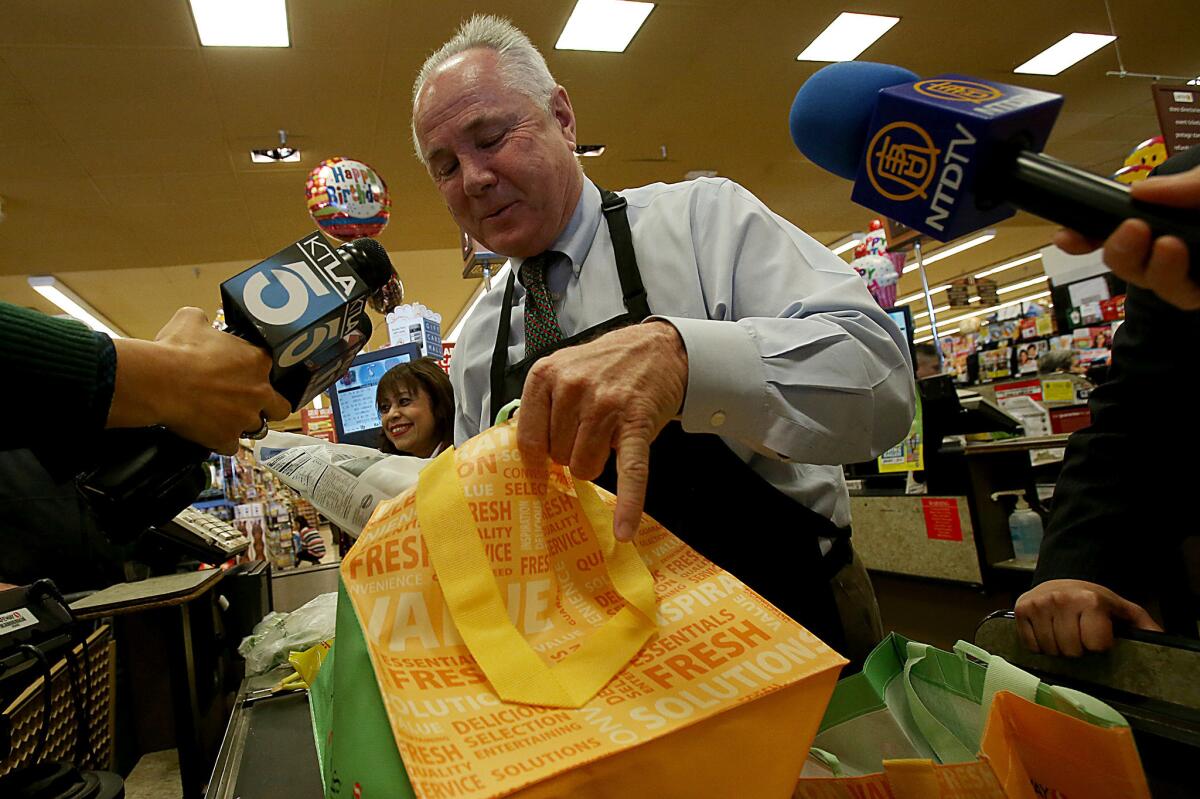Bring your own (reusable) bag

- Share via
The reusable bags should be by the front door or in the car, ready to go. Or at least there should be a few old paper grocery bags around the house that are good for a few more trips. On Wednesday, Los Angeles begins its ban on the flimsy plastic carry-out bags with handles, and there’s no doubt that consumers will be adjusting for a while. It takes some habit-building to remember the bags on each trip to the market. And there will probably be more than a few times that shoppers at the checkout stand will be pondering not “Paper or plastic?” but “Shell out a dime for a paper bag, or just toss everything into the trunk?”
But the payoff is a potentially big one: a lot less garbage on the beaches, in wilderness areas and, most importantly, in the ocean, where, as The Times recently reported, the dangers of decomposing plastic trash appear to be even greater than scientists had thought. Accumulating in giant, soupy “garbage patches” — the one in the Pacific Ocean is twice the size of Texas — the plastic doesn’t just ensnare and get eaten by marine animals, it also hosts its own collection of microorganisms that scientists fear might harm wildlife and cause the release of dangerous chemicals.
It’s an indication that our plastic habit has gotten out of hand, and that banning the ubiquitous plastic carry-out bags might be just a start. A good next item on which to focus this growing awareness might be plastic single-use bottles, especially the one-serving water bottles that have become omnipresent. Unlike bags, bottles are easily recycled, but only 30% of the 2.5 million plastic bottles used every hour in this country make it to a recycling bin. In Sweden, 80% of bottles are recycled, largely because of a good public-awareness campaign that could easily be duplicated in this country. What also would help: abundant, well-maintained water fountains and recycling bins atop or next to public trash cans.
YEAR IN REVIEW: The good, the bad and the hopeful in wilderness news
Bring your own bag (remember to throw it in the wash from time to time) and learn not to toss your bottle in the trash bin? All challenges should be so simple to address. With a little practice, these small gestures could help reverse and prevent a serious environmental problem.
More to Read
A cure for the common opinion
Get thought-provoking perspectives with our weekly newsletter.
You may occasionally receive promotional content from the Los Angeles Times.










